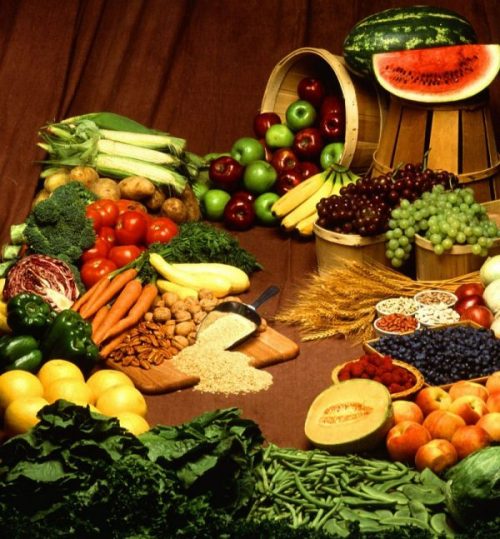We use many products in our daily life. Have you ever given a thought about which of these are synthetic and which are herbal and organic? Most of us don’t. And the sad fact is that our modern lifestyle surrounds us more with synthetic products than natural and organic things that are healthier.
But before we can understand why organic products are healthier, we must first know how they differ from synthetic or herbal products.
Synthetic vs. Herbal vs. Organic Products
Synthetic products:
Synthetic products are made from chemicals or artificial substances instead of natural ones. These substances are made by chemical synthesis, often to imitate a natural product. Like synthetic fiber, synthetic leather, etc.
Herbal products:

Herbal products are made from plants for their medicinal value. These include herbal cosmetics, cleaning products, medicines, etc. However, herbal does not necessarily mean free of chemicals. Chemicals might be used in growing the plants, or as preservatives, fragrances, color, etc in these products.
Organic products:
Organic products are produced and handled using organic means. No chemical is used during their production or processing. They are free of chemical preservatives too. Organic products are not necessarily herbal products. They can be animal products too. Plants or animals used to produce organic products are not treated with any chemical like pesticide, antibiotics, or growth hormones.
Now that we understand the difference between the synthetic, herbal, and organic products, let’s see why organic products are the healthiest.
11 Advantages of Organic Products
-
Free from toxic chemicals:
Organic food products are grown using natural techniques like green manure, crop rotation, etc. So, they are free of toxic chemicals like pesticides, insecticides, and preservatives. They also have lower levels of toxic metals. One study shows that compared to conventionally grown crops, organic crops have 48% lower levels of the toxic metal cadmium.
This makes organic food a safer choice. An excessive amount of chemicals in food can severely affect our health. Consumption of chemical pesticides can cause digestive dysfunctions, poor immunity, and even serious diseases like cancer, ADHD, birth defects, leading to premature death. By choosing organic food, we reduce the risk of chemical intake and make a healthy choice.
2. Organic food has more antioxidants:
Those who enjoy reading health-related articles will already know that antioxidants are good for us. Besides being beneficial for general health, they can also reduce the risk of heart disease, stroke, and cancer. However, the chemicals present in food can lower the beneficial effect of these antioxidants. Organic food, being free of chemicals, does not hamper the positive impact of the antioxidants. And research shows that organic food items can contain up to 40% more antioxidants than non-organic food. Organic milk has 60% more omega-3 fatty acids, antioxidants, vitamins, and CLA than non-organic milk.
Besides the antioxidants, organic food is also high in phosphorus and total polyphenols. And Organic chicken contains a higher level of omega-3 fatty acids.
3. Organic animal products are healthier for the heart:
Animals being reared for organic food production graze on pastures in free range. The naturally growing grass in these pastures is full of organic CLA (Conjugated Linoleic Acid). CLA is a heart-healthy fatty acid that protects cardiovascular health. Organically produced meat, therefore, is healthier for the heart.
4. Free from antibiotics:
Non-organic food sources like livestock are treated with vaccines, growth hormones, animal byproducts, and antibiotics to keep them healthy. When we consume food products from these sources, we also indirectly consume the chemicals these animals were treated with. This indirect intake of antibiotics and vaccines may affect and weaken our immune system.
The advantage of organic food is that it is free from antibiotics and other chemicals. So, it has no adverse effect on our immune system.
5. Keep your children safe:
Studies reveal that even the cord blood of new-born contains traces of 21 pesticides and about 200 other harmful chemicals. This has been linked to birth defects like autism, ADHD, childhood leukaemia, and several learning and nervous system disorders in kids. We can reduce the risk of these in our children by improving our food practices and choosing chemical-free food products.
6. Better for the environment:
Organic farming does not use any chemicals. It takes advantage of natural techniques like using manure instead of fertilizers and weeding instead of using herbicides. This reduces the water and soil pollution caused by chemicals. Thus, organic food is not just healthy to consume, it is healthier for the environment too.
7. Organic food is fresh food:
Organic food is free from preservatives. So, they are not artificially induced to have a longer shelf-life. Supply of organic food items is guided by strict standards of production, preparation, and preservation. So, when you get fresh organic food, it is actually fresh.
8. Good for local farming:
As organic food items don’t have preservatives, they have less shelf-life. So, most of the organic farming is done locally. So, an increase in the demand for organic food items is beneficial for local farmers and the economy.
9. Organic food can be cheaper:
Because most organic food is locally produced, it can be cheaper than non-organic food materials. Besides, being free of toxic chemicals and metals, it helps in better health. And what’s more precious than good health?
10. Free of genetic modification or growth hormones:
The profit motive often drives farmer to use means that deliver more yield. This involves genetic modification and the use of growth hormones on plants and animals. This helps in producing more food with less effort and cost. But it can also have adverse effects on health. It can impair the immune system and make people more sensitive to allergens.
Organic food is produced without using any such artificial means of growth. So, it has no such adverse effects.
11. Better in taste:
Organic crops are allowed more time to grow and develop naturally. Animals graze on free pastures and are not given any vaccine, antibiotic, etc. And organic food is fresher. All this enhances the taste of the food and makes the meals more delicious.






